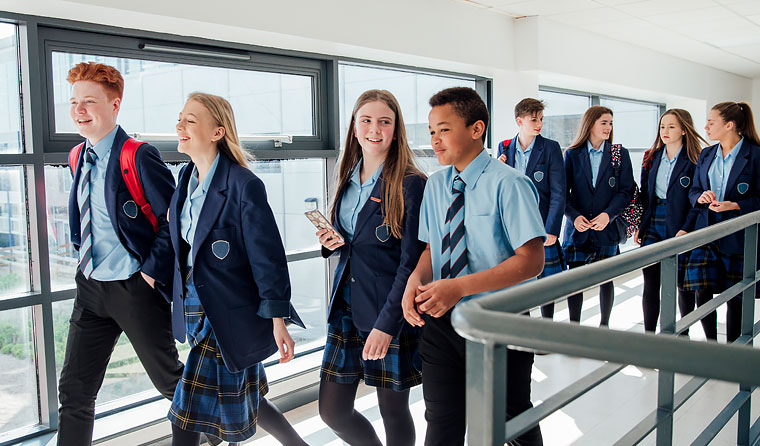Feature
Should every high school have a GP?
Former RACGP GP of the Year Dr Jane Cooper provides her insights from six years on campus.
 Tasmanian GP Dr Jane Cooper has run an adolescent health clinic out of Don College since 2013.
Tasmanian GP Dr Jane Cooper has run an adolescent health clinic out of Don College since 2013.
Six months ago, Mabel Park State High School became the first in Queensland to house an onsite GP.
The idea behind the project is to help students improve their overall wellbeing by facilitating easy access to primary care, particularly for students who are ‘least likely’ to see a doctor, by providing a GP clinic within the school once a week.
The results so far have been promising, but will it work in the long term?
According to Tasmanian GP Dr Jane Cooper, who has run an adolescent health clinic out of Don College since 2013, the answer is clear.
‘Absolutely,’ she told newsGP.
‘When we opened the clinic, there was nothing in Devonport for young people. So we offered sexual health, general health, mental health, and we got a bit of everything, but we got lots and lots of mental health.
‘What I’ve seen is, if you can access these kids earlier and give them tools, teach them how to access help … you can make quite a big change.’
Dr Cooper encountered so many patients with mental health issues she was initially concerned she was over-diagnosing them, but the longer she continued in the role the more convinced she became about what was really happening.
‘The reality is we’ve just been under-diagnosing it and picking it up much later in life, usually when something big happens; there’s a major crisis or they get married and start relationships and they fall apart, or they have babies and develop postnatal depression. Yet often all the signs were there in adolescence,’ she said.
‘These kids are very aware. The majority want to be successful, they want to be independent, and they want to have a job. If they don’t, we teach them that that’s what they need to do and that will give them the things they need in life.’
Don College principal John Thompson has also noticed the change. He is a major advocate for on-campus GPs, who are able to coordinate care in conjunction with other health services.
‘We knew we had students with medical issues that required consultations, but they were just not having them looked at … we lost so many opportunities for presentations, simply because students would not attend,’ he told newsGP.
‘My initial aim was to establish what’s called a full service school, basically a one-stop shop where students can have their holistic health needs met.
‘From all angles, it’s a much more efficient model of service delivery.’

While many teenagers experience mental health problems, for example, issues such as distance and stigma can act as barriers to them receiving treatment.
Prior to 2013, many students did not have a regular GP, Mr Thompson said, and some had never been to one at all. The main issues related to distance and stigma, both of which were helped by the establishment of Don Medical Centre.
‘One of the key indicators we have for success is the number of students who previously were not receiving treatment for conditions that are now, upon a referral to an accessible, adolescent-friendly and confidential service, actually re-presenting,’ Mr Thompson said.
‘We also had many students in our community who had referrals to other allied health agencies, but were not presenting to those appointments because of timing, expense, difficulty of access, transport – all the possible barriers you could think of.
‘But having a GP onsite has enabled us to attract other [health] services or coordinate access to those services in a more student-friendly manner.’
Despite the benefits and the overwhelmingly positive reception from students, however, the project has not been without issues – primarily attracting other GPs and making the clinic financially viable.
‘Engaging other GPs is a big struggle we’ve had in our community, for lots of reasons,’ Dr Cooper said.
‘They’re busy in their own practices, we don’t have a lot of doctors come to the north-west coast of Tasmania, and I think they’re nervous in dealing with young people.
‘We [also] couldn’t access any funding to support us. So every time I was on campus, we lost money. It was a real community service.’
The situation became so dire that there were fears the clinic may have to close its doors for good last year, despite its positive impact on students. However, a new partnership with Cornerstone Youth Services, the fund-holders of headspace in Devonport, has given the clinic a new lease on life.
‘A couple of years ago I helped them set up a satellite practice in Devonport, which was linked to the Launceston headspace, and so we had a very good working relationship prior to me approaching them,’ Dr Cooper said.
‘Now we have created a collaborative relationship with Cornerstone, using the headspace money to help fund a Tasmanian Health Service youth health nurse, and me working as an independent.’
It’s a model Dr Cooper is keen to pursue.
‘Next year we’ll start recording a bit more data and look at how successful this collaborative arrangement is, because in my opinion this is the way to do it,’ she said.
‘It’s a wonderful opportunity for headspace to be in schools, because that’s where it should be.
‘It’s [also] important from a government and policy point of view. If you intervene early, we’re going to have a healthier, independent, employable bunch of people later down the track, who I hope will be happier and less of a cost to the government.’
Login below to join the conversation.
adolescent health high school mental health
newsGP weekly poll
Which of the following areas are you more likely to discuss during a routine consultation?